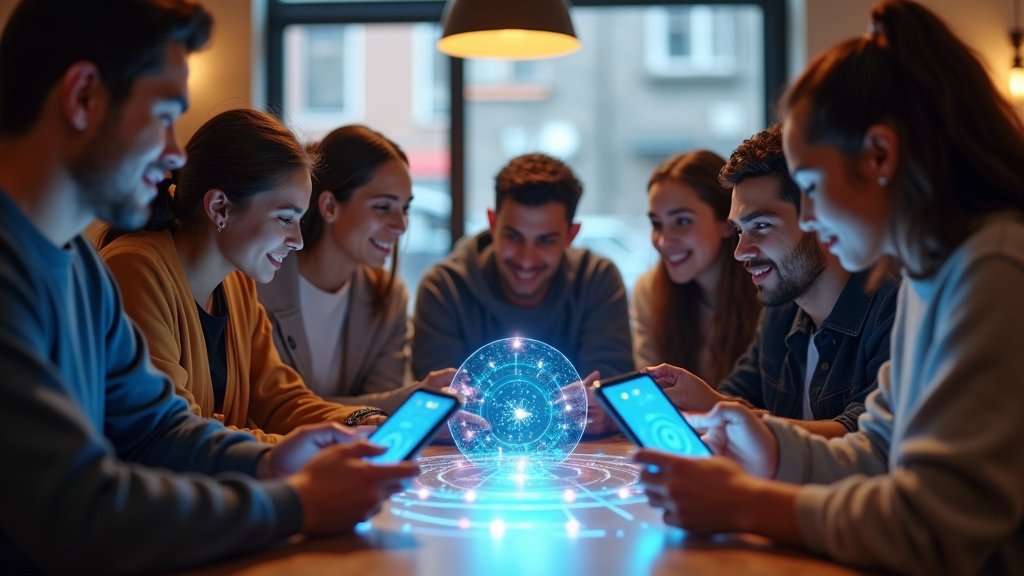The music industry is no stranger to innovation, and the latest trend taking the world by storm is the rise of AI-generated music. With advancements in artificial intelligence, musicians and tech enthusiasts are exploring new ways to create, produce, and distribute music. This development not only challenges traditional music-making processes but also opens up a plethora of opportunities for artists and listeners alike. As AI continues to evolve, its impact on the music industry is becoming increasingly significant, reshaping how we experience and interact with music.
What is AI-Generated Music?
AI-generated music refers to the creation of musical compositions using artificial intelligence algorithms. These algorithms can analyze vast amounts of musical data, learning patterns and styles to generate original pieces. This technology can be used to create entirely new tracks, assist artists in the composition process, or even remix existing songs.
How Does AI Create Music?
AI music creation involves several key technologies:
- Machine Learning: AI systems are trained on extensive datasets of music, learning patterns, structures, and styles. This training allows AI to generate music that mimics specific genres or artists.
- Neural Networks: These are used to create complex compositions by simulating the way the human brain processes information. Neural networks can generate melodies, harmonies, and rhythms that sound surprisingly human.
- Natural Language Processing (NLP): AI can analyze lyrics and generate new ones, creating cohesive and meaningful songs.
Pioneers in AI-Generated Music
Several artists and tech companies are leading the charge in AI-generated music:
- AIVA (Artificial Intelligence Virtual Artist): AIVA is one of the first AI systems recognized as a composer. It has created music for video games, films, and commercials, showcasing the potential of AI in professional music production.
- OpenAI’s Jukedeck: Acquired by ByteDance, the company behind TikTok, Jukedeck uses AI to generate custom music tracks. This technology allows users to create personalized soundtracks for their content.
- Taryn Southern: An independent artist, Taryn Southern, released the album “I AM AI,” entirely composed with the help of AI. This project highlights how independent musicians can leverage AI to push creative boundaries.
The Benefits of AI-Generated Music
AI-generated music offers numerous advantages:
- Efficiency: AI can compose music much faster than humans, significantly reducing production time. This efficiency is particularly beneficial for industries requiring a high volume of music, such as advertising and gaming.
- Creativity: AI can generate innovative compositions by blending styles and experimenting with new sounds. This creativity can inspire human artists and lead to unique musical experiences.
- Accessibility: AI tools democratize music creation, making it accessible to individuals without formal musical training. Aspiring musicians can use AI to explore their creativity and produce professional-quality tracks.
Challenges and Ethical Considerations
Despite its potential, AI-generated music raises several challenges and ethical concerns:
- Originality: There is ongoing debate about the originality of AI-generated music. Since AI learns from existing music, questions arise about the authenticity and creativity of its compositions.
- Copyright Issues: AI-generated music can blur the lines of copyright law. Determining the ownership of AI-created works and ensuring proper attribution can be complex.
- Job Displacement: As AI becomes more prevalent, there are concerns about its impact on musicians and composers. While AI can augment human creativity, it may also reduce the demand for traditional music roles.
Impact on the Music Industry
The integration of AI into the music industry is reshaping various aspects:
- Music Production: AI tools are streamlining the production process, allowing for faster and more cost-effective music creation. Producers can use AI to enhance their workflow and experiment with new sounds.
- Distribution: AI-generated music is finding its way onto streaming platforms, expanding the diversity of available music. Listeners can discover AI-created tracks alongside traditional compositions.
- Live Performances: AI is also influencing live performances. Artists are experimenting with AI-generated visuals and music, creating immersive concert experiences that blend technology and artistry.
Future Prospects
The future of AI-generated music holds exciting possibilities:
- Collaborative Creativity: AI is expected to become a collaborative tool for musicians, offering suggestions and generating ideas to enhance human creativity. This partnership could lead to unprecedented musical innovations.
- Personalized Music: AI can create personalized music tailored to individual preferences. Streaming services may use AI to generate custom playlists, providing a more personalized listening experience.
- Evolution of Genres: AI has the potential to create entirely new genres by blending existing styles in innovative ways. This evolution could lead to a broader and more diverse musical landscape.
Conclusion
AI-generated music is a groundbreaking development in the music industry, offering both opportunities and challenges. As technology continues to advance, AI will likely play an increasingly prominent role in music creation and production. While ethical and practical considerations must be addressed, the potential for innovation and creativity is immense. Musicians, producers, and listeners are on the brink of a new era in music, where human and artificial intelligence work hand in hand to create the sounds of the future.
FAQs
What is AI-generated music? AI-generated music refers to music created using artificial intelligence algorithms, which can compose, produce, and remix tracks based on learned patterns and styles.
How does AI create music? AI uses machine learning, neural networks, and natural language processing to analyze musical data and generate original compositions.
Who are some pioneers in AI-generated music? Notable pioneers include AIVA, OpenAI’s Jukedeck, and independent artist Taryn Southern, who have all used AI to create innovative music.
What are the benefits of AI-generated music? Benefits include increased efficiency in music production, enhanced creativity through new sound combinations, and greater accessibility for aspiring musicians.
What challenges does AI-generated music face? Challenges include concerns about originality, copyright issues, and potential job displacement for traditional musicians.
How is AI impacting the music industry? AI is streamlining music production, influencing distribution, and enhancing live performances with new technological capabilities.




